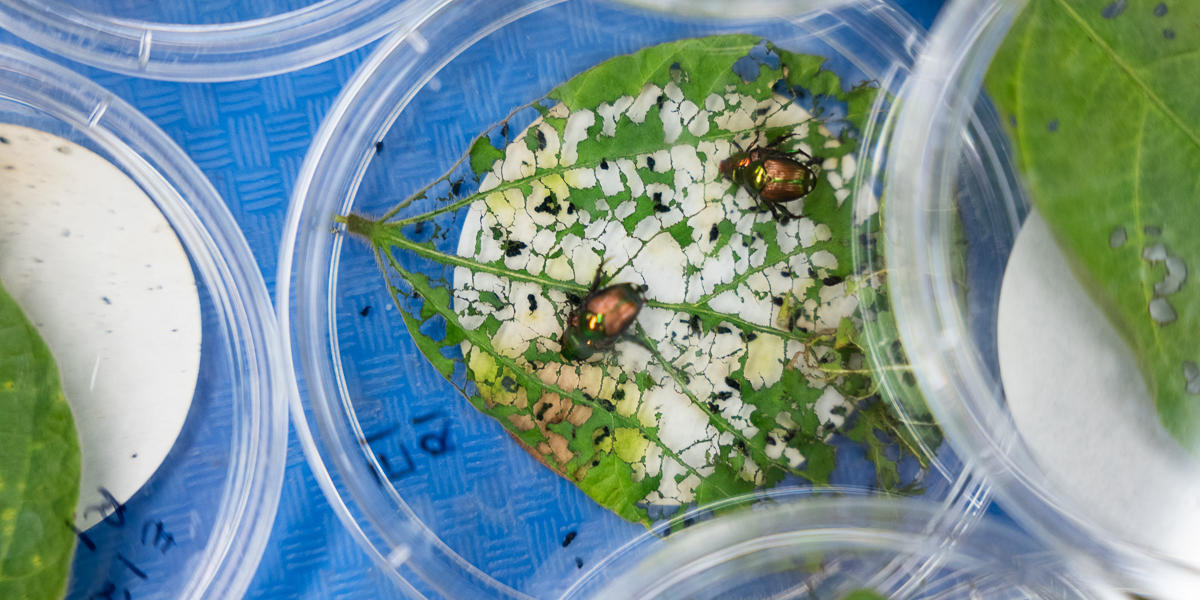
Studying Japanese beetle soybean defoliation in the lab. Photo by John Schoolmeesters.
Background
Soybean aphid (Aphis glycines) and Japanese beetle (Popillia japonica) are both invasive insects that pose serious threats to soybean production. Soybean aphid is the more significant pest, capable of causing 40% loss of yield. Although Japanese beetle has been in Minnesota for decades, only recently has the insect become a problem for soybeans. Large infestations of Japanese beetle have caused up to 18% loss.
Farmers currently rely on insecticides to manage soybean aphid, which may be negatively impacting the sustainability of soybean production. Insecticides have been implicated in the declines of pollinators and in the contamination of surface waters. Minnesota farmers need solutions to manage these two insect pests that are both effective and environmentally sound.
This research team will build on previous work to identify existing pest-resistant genes in soybeans and develop soybean varieties to help growers reduce insecticide use.
Research questions
- What are the underlying plant genes that are resistant to soybean aphid?
- What sources of Japanese beetle resistance already exist in the USDA germplasm collection?
- What are the characteristics of soybean resistance to Japanese beetles?
Practical implications
The goal of this research is to provide sustainable management alternatives for two significant soybean pests. Researchers aim to increase the availability and adoption of soybean varieties resistant to soybean aphids and Japanese beetles. Growers will benefit by decreasing their reliance on insecticides, reducing adverse environmental impacts, and being able to lower costs to manage their crops.
The research also has the potential to assist in the development of more robust forms of pest resistance in soybeans long term.
Outcomes
This project began in January 2023 and is in progress for the next 3 years. Please check back at a later time for updates.
To stay connected, sign up for the MITPPC newsletter.
Publications
- Evaluation of soybean accessions for resistance to the Japanese beetle, 2023 (Arthropod Management Tests, 2023)